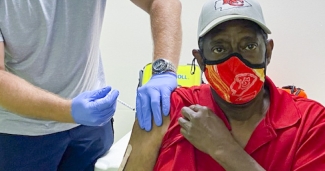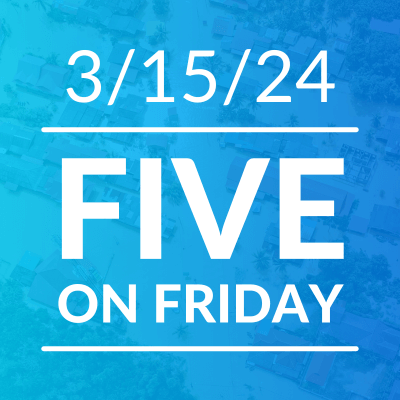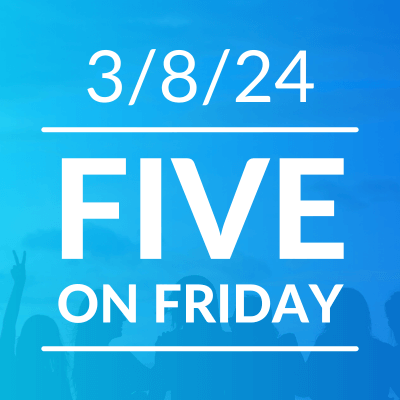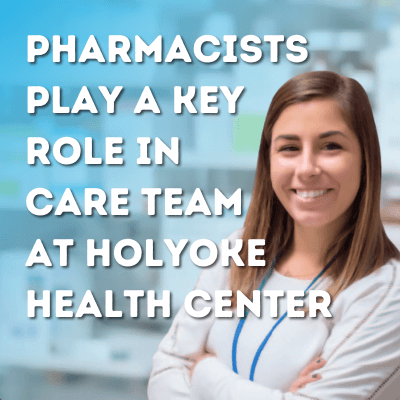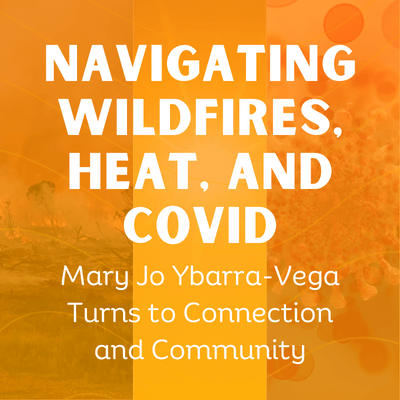Partner Spotlight: Kansas Black Farmers Association
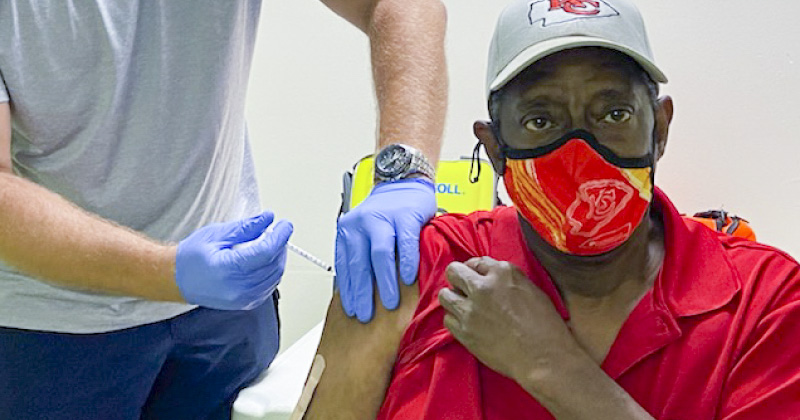
[Editor’s Note: Since July 2021 Alianza Nacional de Campesinas (Alianza), Migrant Clinicians Network (MCN), Rural Coalition (RC) and 20 organizational partners and members have mobilized 221 community health outreach workers across 20 states and Puerto Rico to encourage vaccination within Black, Indigenous and people of color (BIPOC) rural communities. Funded by an $8.1 million grant from HRSA, the effort aims to raise vaccination rates among immigrant and migrant farmworkers, and rural communities of color through reinforcing COVID-19 information, addressing vaccine hesitancy and accessibility, and assisting in countering misinformation and disinformation.]
For Black farmers in Kansas, the pandemic has not been easy. After decades of shrinking land ownership, the challenges of COVID-19 represent a new kind of threat, and organizations like the Kansas Black Farmers Association (KBFA) have redirected their efforts to meet it. KBFA has made strides to vaccinate rural communities throughout Kansas, but not without challenges. While much of their work has been greeted with enthusiasm, vaccine events run by KBFA have also been greeted with confederate flags and fear.
While hesitation and concerns regarding COVID-19 vaccines are not uncommon, at times KBFA has been greeted with outright hostility, and with racist imagery being worn by people who surrounded a KBFA booth to intimidate the organization. At a state fair where two members of KBFA were distributing information, a group of white men with confederate flags on their shirts began to pace near them. They left for a short period and later returned to the fair with a full-sized confederate flag. The group sat across from the booth as an intimidation tactic, and people stopped taking pamphlets with vaccination information before the representatives of KBFA eventually packed up and left. Since then, KBFA has attended all events in larger numbers in order to ensure safety.
KBFA, formed in 1999, originated from a need to both build a supportive network within the Kansas Black agricultural community and increase profits for local farms. Since their formation, KBFA has worked extensively to encourage interest in the farming industry, as well as to share agricultural knowledge on urban farming and successful techniques within the community. Over the past few months, KBFA has brought best and promising practices to MCN's HRSA funded Learning Collaboratives, sharing with organizations their strategies for addressing vaccine hesitancy in rural communities and learning from other organizations as well.
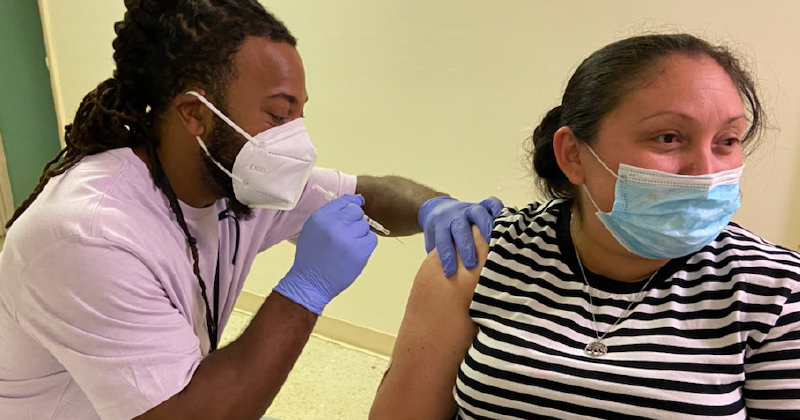
De-escalation techniques shared at one Learning Collaborative were mentioned as a useful resource for KBFA staff who interact with community members who are potentially hostile to their efforts. At a recent event in shopping center parking lot, anti-vaccination and anti-mask individuals drove in circles around the event yelling “we don’t want you to be here,” and “we don’t need vaccinations” at members of KBFA and other organizations. A valuable de-escalation technique for encounters like this proved to be refusal to engage, not allowing the drivers to initiate an argument about vaccination.
Promising strategies like mobile vaccine clinics and gift card incentives are some of the incredible tactics KBFA is using to encourage the communities it serves to get the shot. “If they’re getting a $100 gift card and there’s four of them getting vaccinated, that’s $400 dollars. That might be a light bill,” explained Dr. JohnElla Holmes, executive director for KBFA. These gift cards are supplied by some of KBFA’s partners in the community that trust and support the work of the organization.
Dr. Holmes explained that consistency has been an important part of their vaccination efforts. She described how running clinics at the same locations on a regular basis makes it easier for community members to know where they can get vaccinated when they feel comfortable and ready to do so. KBFA has also made efforts to make their vaccination sites warm and welcoming. “It needs to look like a party, like something happy is happening,” she said.
KBFA has also tried to work with local schools, though there has been push back at times, with some school boards voting not to allow KBFA to come and talk about vaccination. Another school had staff members who refused to allow KBFA to come to school grounds, but after a meeting with the superintendent, they were able to come to the school to talk to eligible kids about vaccination.
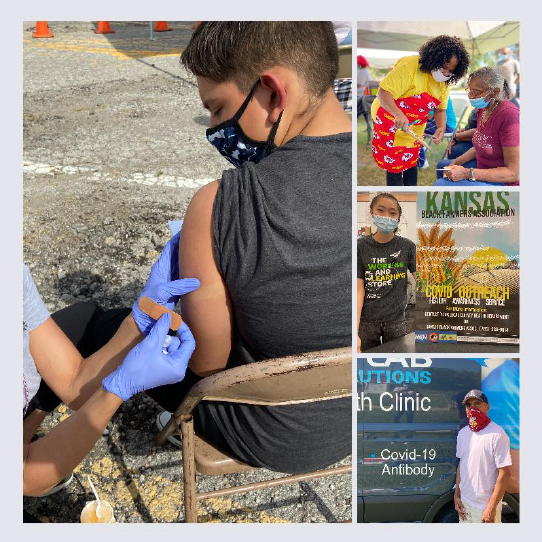
KBFA has used their influence and existing trust and connections to bring attention to the COVID-19 pandemic and strengthen their fight against the virus. Working with local organizations and groups such as Kansas Beats the Virus, Potawatomi Tribal Nation, the Wichita Black Nurses Association, and KORE Laboratories, as well as Lt. Governor Rogers Rural Initiatives and the Governor’s office has allowed KBFA to reach a large number of people in need of vaccination while also ensuring access to the necessary resources to vaccinate these communities.
KBFA has recently acquired their own mobile vaccination unit, giving them the ability to better meet people where they are.
Each week MCN facilitates a bilingual Learning Collaborative that offers partners access to clinical staff, other experts, an extensive library of fully editable COVID-19 resources, evidence-based COVID-19 updates, and extensive communications and marketing technical assistance to support partner’s use and adaptation of resources to fit their community’s needs. Each organization shares learning collaborative content and activities with their frontline community health workers, who tirelessly promote COVID-19 vaccination in the counties, towns, and neighborhoods where they live. This blog series highlights best and promising practices used by grant partners across the country, which are shared at the learning collaboratives, creating a diverse learning environment.
This is supported by the Health Services and Resources Administration (HRSA) of the U.S. Department of Health and Human Services (HHS) as part of an award totaling $8,105,547 with 0% percentage financed with non-governmental sources. The content are those of the author(s) and do not necessarily represent the official views of, nor an endorsement, by HRSA, or the U.S. Government. For more information, please visit HRSA.gov.
Resources:
- COVID-19 Vaccine Awareness Campaign Resources
- The COVID-19 Community Health Worker Vaccine Learning Collaborative: Webinars and Resources
- NRC-RIM: Mobile clinics bring vaccines to workers in rural communities
- NRC-RIM: Pop-Up Vaccination Events at Community Clinics
- NRC-RIM: Mobile Vaccine Units to Serve Communities
Got some good news to share? Contact us on our social media pages above.
Return to the main blog page or sign up for blog updates here.
- Log in to post comments
